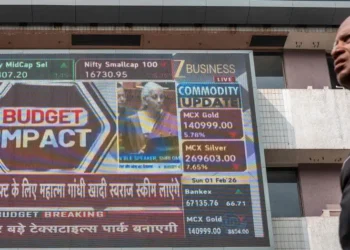NEW YORK (Realist English). John Deere warned Thursday that tariff expenses could reach nearly $600 million in fiscal year 2025, even as the agricultural machinery company reported third-quarter results that exceeded Wall Street expectations on revenue and earnings per share.
The warning came as Deere posted steep declines in both net income and sales. Net income for the quarter ended July 24 fell 26% to $1.29 billion, down from $1.73 billion a year earlier. Net sales dropped 9% year-over-year to $12.02 billion from $13.15 billion.
Shares of the company tumbled about 7% in midday trading.
John Beal, Deere’s director of investor relations, told analysts on an earnings call that tariff expenses were already weighing heavily on operations.
“Tariff costs in the quarter were approximately $200 million, which brings us to roughly $300 million in tariff expense year-to-date,” Beal said. “Our forecast for the pre-tax impact of tariffs in fiscal 2025 is now adjusted to nearly $600 million.”
Operating profits for the third quarter were squeezed by tariffs and higher production costs, the company said.
Deere’s third-quarter earnings per share came in at $4.75, topping analyst forecasts of $4.63, according to LSEG. Revenue reached $10.36 billion, just above the $10.31 billion expected.
The company also narrowed its full-year net income forecast to a range of $4.75 billion to $5.25 billion, trimming the high end from a prior $5.5 billion.
Chief executive officer John May said Deere is focused on balancing immediate challenges with long-term strategy.
“We remain committed to delivering solutions that address our customers’ current needs while also laying the groundwork for future growth,” May said. “The positive outcomes we’re enabling reinforce our confidence in Deere’s future despite near-term uncertainty.”
Cory Reed, president of Deere’s worldwide agriculture and turf division, added that trade and tax policies could offer supportive tailwinds. “We think there’s positive momentum from both what we see in the trade deals, and from what we see in tax policy,” Reed said.
Oppenheimer analyst Kristen Owen described the company’s outlook as “cautiously optimistic” in light of economic and trade uncertainties.
“Really, a lot of the uncertainty is what does 2026 look like, now that the commodities backdrop isn’t nearly as favorable as it was six months ago,” Owen said on CNBC.
Deere said it is seeing signs of improving demand in Europe and South America, even as global conditions remain volatile.


















